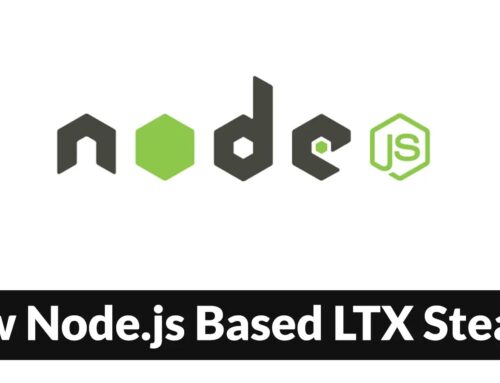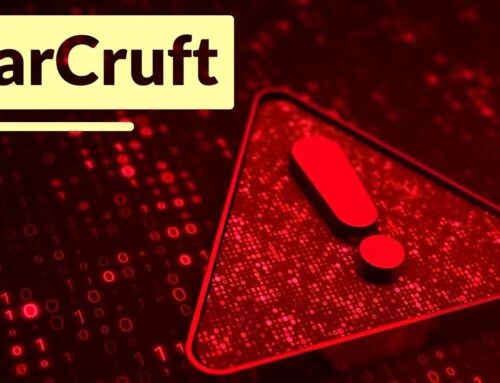
Mustang Panda Attacking Windows Users With ToneShell Malware Mimic as Google Chrome
Unmasking ToneShell: Mustang Panda’s Deceptive Google Chrome Impersonator
In the relentless landscape of cyber espionage, threat actors continuously evolve their tactics to compromise unsuspecting targets. A recent, sophisticated campaign has surfaced, demonstrating a cunning new approach by the notorious advanced persistent threat (APT) group, Mustang Panda. This campaign leverages a novel malware variant dubbed ToneShell, which ingeniously masquerades as the widely trusted Google Chrome browser, specifically targeting Windows users. Understanding this sophisticated deception is paramount for bolstering organizational defenses and protecting sensitive data.
Who is Mustang Panda? A Persistent Threat Profile
Mustang Panda, also known as Bronze President or Red Lich, is a well-documented APT group with a long history of cyber espionage activities. Primarily, their operations focus on strategic targeting of government entities, non-governmental organizations (NGOs), and technology sectors. Their objectives typically revolve around intelligence gathering, intellectual property theft, and political espionage. The deployment of ToneShell signifies a continued commitment to developing advanced tools and techniques to achieve their objectives, highlighting a persistent and evolving threat.
Deconstructing ToneShell: A Mimicry of Trust
The ingenuity of the ToneShell malware lies in its deceptive simplicity. By adopting the persona of Google Chrome, it capitalizes on the implicit trust users place in ubiquitous software. This impersonation is a classic social engineering tactic designed to bypass initial suspicion and conventional security measures. While specific technical details regarding ToneShell’s payload and execution chain are still emerging, its primary function appears to be facilitating espionage, likely involving data exfiltration, reconnaissance, and establishing persistent access within compromised environments. The sophisticated nature of this campaign suggests a significant investment by Mustang Panda in its development and deployment.
Targeting Windows Users: A Broad Attack Surface
The decision by Mustang Panda to target Windows users with ToneShell is not coincidental. Windows remains the most widely used operating system globally, presenting a vast and attractive attack surface for APT groups. This broad targeting strategy allows Mustang Panda to maximize their potential reach, aiming to compromise a diverse array of organizations and individuals for intelligence-gathering purposes. Enterprises and individuals running Windows operating systems must remain particularly vigilant against this specific threat.
Remediation Actions and Proactive Defenses
Defending against sophisticated threats like ToneShell requires a multi-layered and proactive security strategy. Organizations and individual users must adopt a rigorous approach to cybersecurity hygiene and implement robust technical controls:
- User Education: Conduct regular security awareness training sessions, emphasizing the importance of verifying software authenticity, scrutinizing download sources, and recognizing phishing attempts. Educate users about the dangers of downloading software from unofficial repositories or through suspicious links.
- Application Whitelisting: Implement application whitelisting solutions that only permit approved and signed applications to execute on endpoints. This can effectively block unauthorized software like ToneShell from running.
- Endpoint Detection and Response (EDR): Deploy and meticulously monitor EDR solutions to detect anomalous behavior, suspicious processes, and potential malware activity in real-time. EDR tools can identify deviations from normal application behavior, even if a threat initially bypasses traditional antivirus.
- Network Segmentation: Implement network segmentation to limit the lateral movement of malware within your network in the event of a compromise. This can contain the damage and prevent wide-scale infection.
- Regular Security Audits and Penetration Testing: Conduct periodic security audits and penetration tests to identify vulnerabilities and weaknesses in your cybersecurity posture before adversaries can exploit them.
- Patch Management: Ensure all operating systems, applications, and security software are regularly updated with the latest security patches to address known vulnerabilities. While ToneShell is a new threat, robust patching practices reduce the overall attack surface.
- Strong Authentication: Enforce the use of strong, unique passwords and multi-factor authentication (MFA) across all systems and services to prevent unauthorized access, even if credentials are compromised.
Recommended Tools for Detection and Mitigation
| Tool Name | Purpose | Link |
|---|---|---|
| Microsoft Defender for Endpoint | Advanced EDR for Windows systems | Official Website |
| CrowdStrike Falcon Insight XDR | Cloud-native EDR and XDR platform | Official Website |
| Carbon Black Cloud Endpoint Standard | Endpoint protection and threat detection | Official Website |
| Mandiant Advantage (Threat Intel) | Actionable threat intelligence on APT groups like Mustang Panda | Official Website |
| Wireshark | Network protocol analyzer for traffic inspection | Official Website |
Concluding Thoughts: Vigilance in an Evolving Threat Landscape
The emergence of ToneShell, deployed by the sophisticated Mustang Panda APT group, serves as a stark reminder of the dynamic and persistent nature of cyber threats. By masquerading as a trusted application like Google Chrome, adversaries exploit fundamental human trust and common computing practices. Effective defense against such advanced campaigns hinges on a combination of robust technical controls, continuous user education, and agile threat intelligence. Organizations and individuals must prioritize hardening their digital environments and fostering a culture of cybersecurity vigilance to mitigate the risks posed by these evolving and deceptive attacks.





